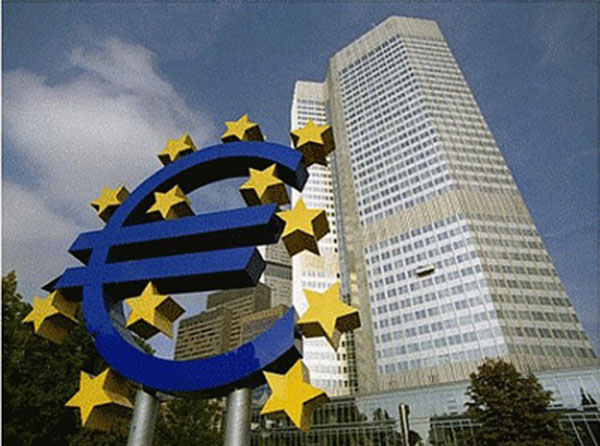Wednesday, 11 November 2015 01:49
 BERLIN: The European Central Bank has been hit by new lawsuits from German eurosceptic politicians over its vast bond-buying programme, several sources said Tuesday.
BERLIN: The European Central Bank has been hit by new lawsuits from German eurosceptic politicians over its vast bond-buying programme, several sources said Tuesday.
The latest legal challenge against the ECB’s “quantitative easing”, or QE, programme was filed before Germany’s Constitutional Court in Karlsruhe by Peter Gauweiler, a former lawmaker and opponent to Greece’s EU-IMF bailout.
Gauweiler charged in a statement that the ECB “does not have the right to actively create such inflation… through massive monetary interventions”.
Another challenge has been filed by the Alliance for Progress and Renewal (ALFA), a new party founded by Bernd Luecke, the former chief of anti-euro party Alternative for Germany (AfD) who quit over a spat with the right wing of the movement.
Luecke charged in September that the ECB’s rock-bottom interest rates are slashing the returns of savers, spelling a de-facto “expropriation”, and that European savers are “financing the sovereign debt of Greece and other troubled eurozone countries”.
The Karlsruhe court was not immediately available for comment, while the ECB declined to comment.
The ECB launched in March a scheme to buy more than 1.1 trillion euros in sovereign bonds at a rate of 60 billion euros per month at least until September 2016, in order to kick-start inflation, which slowed to minus 0.1 percent in September.
While falling prices might appear to be good for consumers, they can be poisonous to the economy by creating a vicious circle of falling demand and fewer jobs.
The fear is that deflation could become entrenched if consumers delay purchases in the hope of lower prices later, which in turn prompts companies to hold off investment.
German politicians have failed in previous challenges against eurozone monetary policy.
In June the ECB scored a landmark victory when the EU’s top court ruled its scheme to buy potentially unlimited amounts of government bonds was legal.
A number of groups of German eurosceptics had contested the ECB’s OMT — or Outright Monetary Transactions — programme, unveiled in 2012, claiming it overstepped the central bank’s mandate and was effectively a way of printing money to pay off a government’s debt.
The verdict marked an important milestone for ECB chief Mario Draghi who had vowed in 2012 to do “whatever it takes” to prevent a break-up of the single currency area.






























